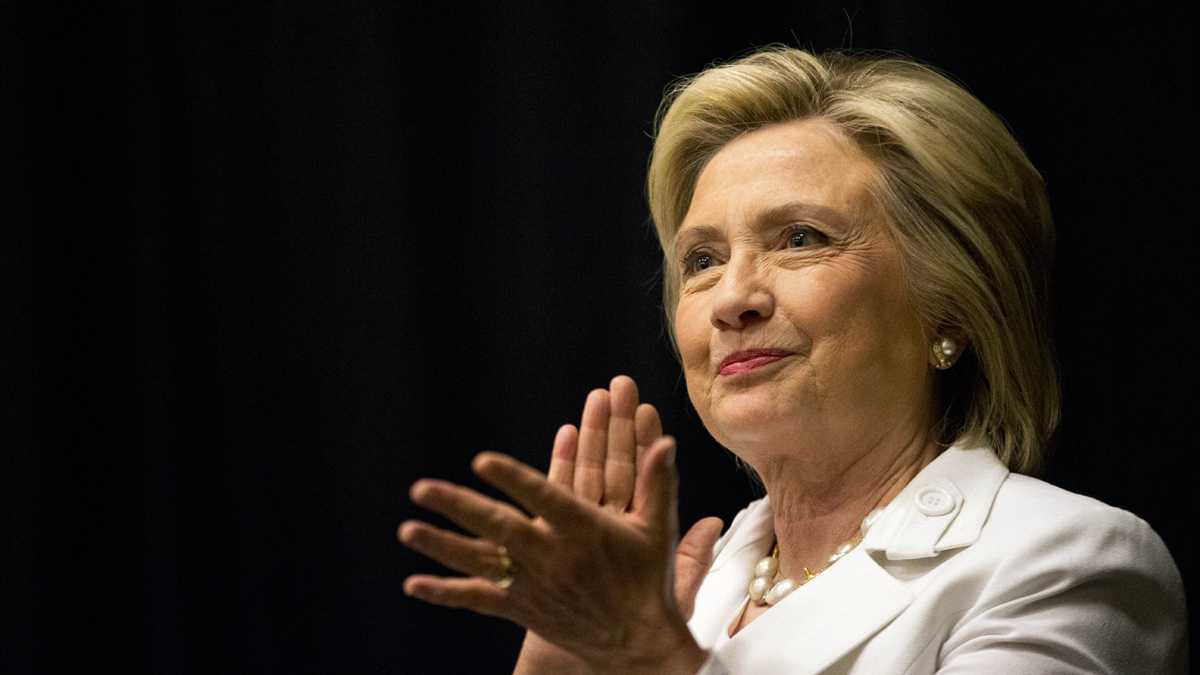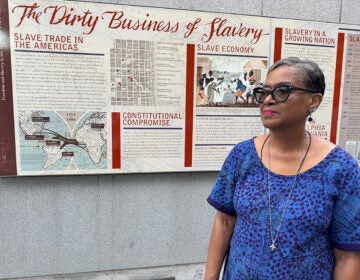Despite American reluctance, Clinton has earned executive office slings and arrows

Democratic presidential candidate Hillary Rodham Clinton Is shown at a campaign stop in June 2015. (David Goldman/AP Photo
As potentially the first woman to become president in American history, Hillary Clinton is credited with having breached the glass ceiling. While American women have undoubtedly been held back, a lot of women overseas have come before Clinton.
“Where women walk in public processions in the streets the same as the men; where they enter the public assembly and take places the same as the men … there the great city stands” —Walt Whitman.
As potentially the first woman to become president in American history, Hillary Clinton is credited with having broached the so-called glass ceiling and taken her place “the same as the men,” to use Whitman’s phrase.
Clearly, for women elsewhere, leading a nation is a precarious life — indeed, potentially lethal.
Indira Gandhi, the first female prime minister of India, was assassinated at age 42. Benazir Bhutto, the first female prime minister of Pakistan, was assassinated at age 54. Golda Meir, the first in Israel, was the object of attempted assassination — as was the Iron Lady, Margaret Thatcher, who became Britain’s first female prime minister in 1979 and served in that capacity for more than 10 years.
The United States stands out among nations for its absence of a woman as president. Why? Kathleen Kennedy Townsend, former lieutenant governor of Maryland, says it’s because an archetype for a powerful woman doesn’t exist in our culture. Our holidays in honor of leaders are all about men (such as Martin Luther King, Jr) or celebrate male presidents (Abraham Lincoln and George Washington) or our founding fathers.
There are some cracks in that American glass ceiling. But Clinton and her handlers can’t pop that champagne just yet. Her own baggage and the dogmatic attacks of Republicans and, more recently, unsympathetic Bernie Sanders supporters, despite the senator’s recent pledge of support, are holding her back.
True, the Benghazi silliness, which took up 782 days and over $7 million, has largely been put to rest. But there’s still the festering issue of her State Department e-mails, which the FBI found to have been the object of extreme carelessness and poor judgment rather than criminality. Then there’s some lingering malodorousness hanging over the Clinton Foundation, which according to some reporters is simply an enormous piggy bank designed to benefit the Clintons. Writing in the Wall Street Journal, Kimberly Strassel said: “It’s past time to drop the fiction that the Foundation is a charity.”
While all of the women mentioned above suffered what Shakespeare called the “slings and arrows of outrageous fortune” — and, in some instances, bombs and bullets — Clinton has at least avoided physical harm or attack; but she has endured the steady drip, drip, drip of slow torture through 30 years of obstruction and insinuation.
But she does have her staunch defenders. In a somewhat adulatory June 8 Facebook post stretching some 4,668 words, blogger Michael Arnovitz sets up and knocks down much of the criticism leveled at Secretary Clinton. He quotes Politifact, the Pulitzer Prize-winning fact-checking project, which said that, despite public and media perceptions, Clinton is one of the more honest politicians. Arnovitz raises — and mostly dismisses — allegations about her closeness to Wall Street, her inflated speaking fees, and her rough treatment of aides. Much of the anti-Clinton criticism, he contends, is sexism, pure and simple.
If Clinton becomes president, the United States, along with Angela Merkel’s Germany, and Theresa May’s Britain, will form a triumvirate of woman-led major powers. The newly minted prime minister May will no doubt benefit from the ways in which Clinton has handled her travails.
With all of the opprobrium she has put up with — and survived — Hillary Rodham Clinton surely deserves to take her place as the first woman president of these United States.
Like her namesake Sir Edmund Hillary, who was among the first men on record to reach the summit of Mount Everest, she has managed with steely determination to reach the top.
As Sir Edmund put it: “It is not the mountain we conquer but ourselves.”
—
David Woods, Ph.D., is a Philadelphia-based medical writer and editor. A former editor in chief of the Canadian Medical Association Journal, he is the author of four books and more than 200 articles, editorials, and reviews in peer-reviewed health care publications.
WHYY is your source for fact-based, in-depth journalism and information. As a nonprofit organization, we rely on financial support from readers like you. Please give today.





